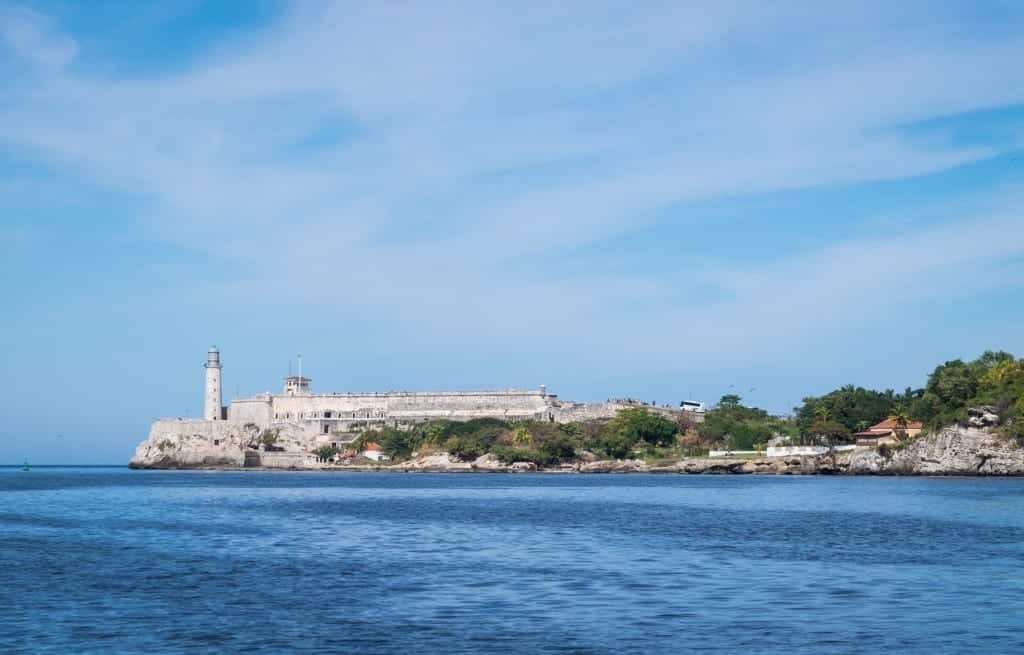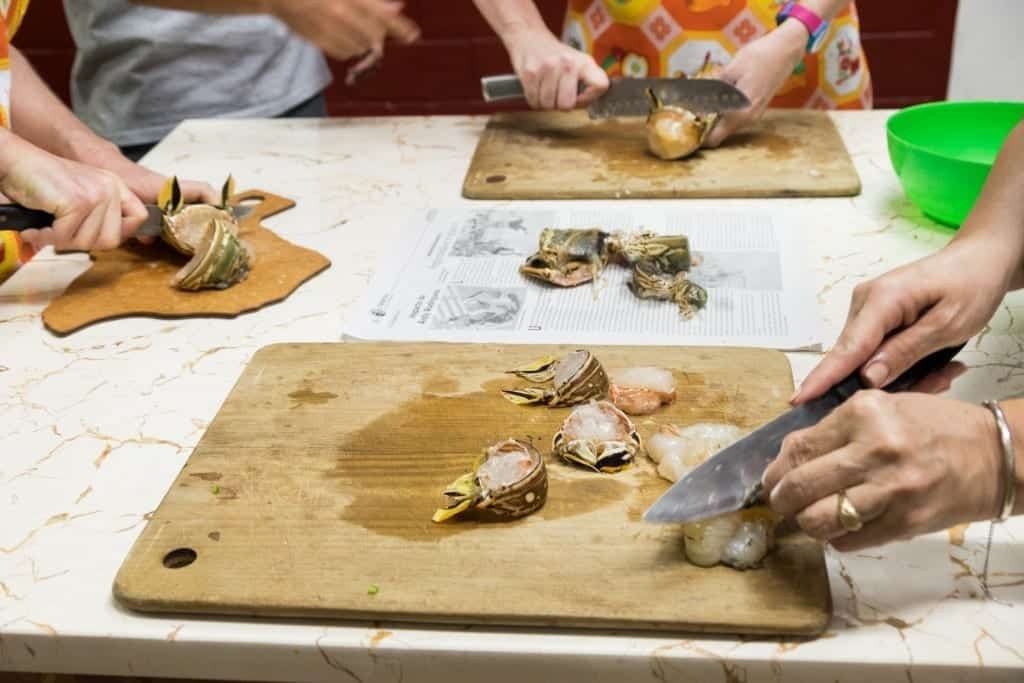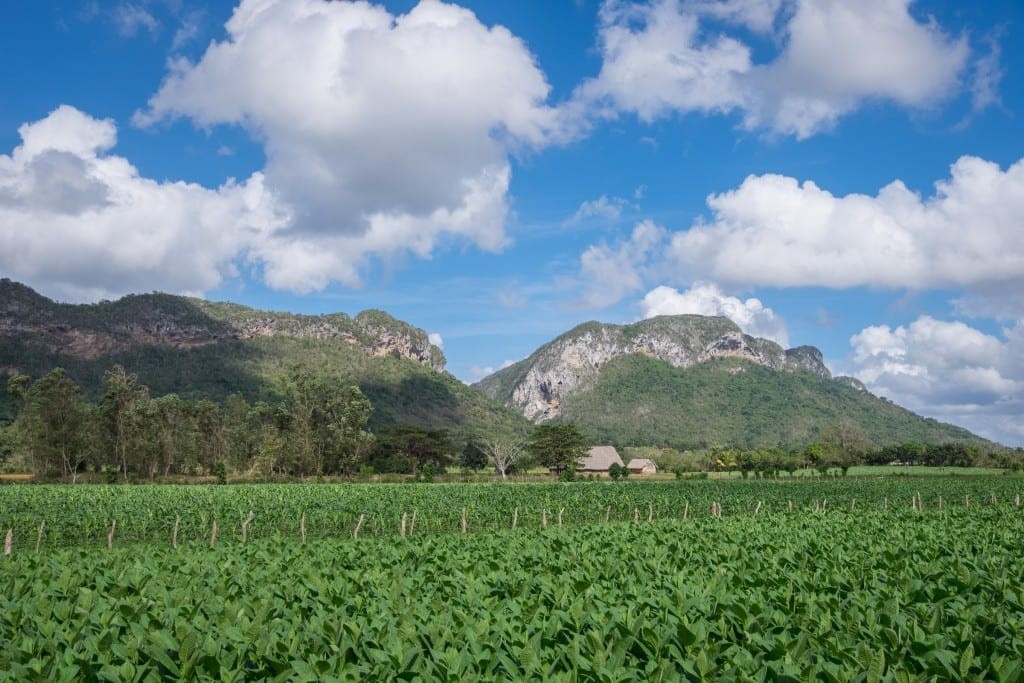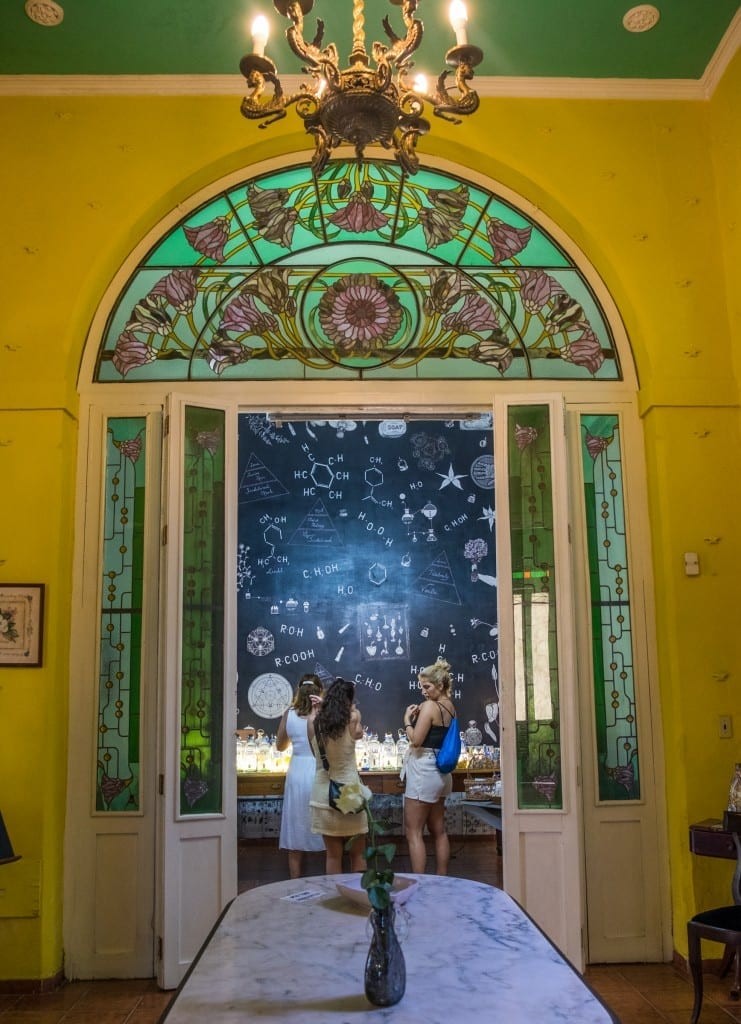Are you wondering “Can I Travel To Cuba From Florida?” Absolutely! It’s possible to explore Cuban culture, enjoy the sun and beaches, and experience the vibrant lifestyle with the right travel know-how. TRAVELS.EDU.VN is here to guide you through the process of legally and safely planning your trip, ensuring you have an unforgettable experience.
1. Is It Possible to Travel to Cuba from Florida?
Yes, traveling to Cuba from Florida is possible, but it requires understanding and adhering to specific regulations set by the U.S. government. Despite the restrictions, many Americans successfully visit Cuba each year by following the guidelines.
Understanding the Regulations
The U.S. government has maintained a complex relationship with Cuba for decades, leading to various travel restrictions. While a complete ban on travel has never been in place, certain activities are prohibited to prevent Americans from directly funding the Cuban government. The key is to travel under a “general license” that authorizes travel for specific purposes.
The General License Explained
A general license is a government authorization that allows U.S. citizens to travel to Cuba without needing to apply for a specific license. These licenses fall under 12 categories, each with its own set of requirements. It’s essential to choose the category that best aligns with your travel intentions.
Common Travel Categories
- Family Visits: If you have close relatives in Cuba, this license allows you to visit them.
- Official Business: Government officials or those working for intergovernmental organizations can travel for official purposes.
- Journalistic Activity: Journalists can travel to Cuba to report on news and events.
- Professional Research and Meetings: Academics and professionals can conduct research or attend meetings related to their field.
- Educational Activities: Students and educators can participate in study abroad programs or educational exchanges.
- Religious Activities: Individuals can travel for religious events or missions.
- Public Performances, Clinics, Workshops, Athletic and Other Competitions, and Exhibitions: This category covers a range of cultural and athletic activities.
- Support for the Cuban People: This is one of the most common categories for tourists, requiring travelers to engage in activities that directly benefit the Cuban people, such as staying in private homes (casas particulares), eating at local restaurants, and visiting privately owned businesses.
- Humanitarian Projects: Those involved in humanitarian work can travel to provide assistance to the Cuban people.
- Activities of Private Foundations or Research or Educational Institutes: This covers travel for research or educational projects sponsored by private organizations.
- Exportation, Importation, or Transmission of Information or Informational Materials: This allows for the exchange of information and informational materials.
- Certain Export Transactions: This category covers specific export-related activities.
 Classic cars and colorful buildings line a street in Havana, Cuba, under a bright blue sky.
Classic cars and colorful buildings line a street in Havana, Cuba, under a bright blue sky.
Choosing the Right Category for Your Trip
For most tourists, the “Support for the Cuban People” category is the most suitable. This requires you to engage in activities that support Cuban independence from government interference. Examples include:
- Staying in a “casa particular” (private homestay) rather than a government-owned hotel.
- Eating at privately-owned restaurants (paladares).
- Shopping at local artisan markets.
- Taking tours led by local guides.
Direct Flights from Florida
Yes, you can catch a direct flight from Florida to Cuba. Nonstop flights to Havana are available from cities like Miami and Fort Lauderdale. You can secure these flights as long as you have a Cuban visa. You can usually purchase your “pink tourist card” at check-in or the ticket office.
2. What Are the COVID-19 Entry Requirements for Cuba?
As of 2024, Cuba has lifted all COVID-related entry requirements, making it easier for travelers to visit.
No Testing or Vaccination Requirements
You no longer need to present a negative COVID-19 test or proof of vaccination to enter Cuba. This change has simplified the travel process, removing a significant hurdle for many potential visitors.
Health Recommendations
While not mandatory, it’s still advisable to take certain health precautions. Consider bringing face masks and hand sanitizer, as these items can be scarce in Cuba. Staying informed about the latest health advisories from organizations like the U.S. State Department is also recommended.
Staying Informed
For the most up-to-date information, refer to the U.S. Embassy in Cuba’s website or the Cuban Ministry of Public Health. These sources provide detailed guidelines and any potential updates to the entry requirements.
3. How Do I Get a Cuban Visa?
Obtaining a Cuban visa, also known as a “tourist card,” is a straightforward process, especially for those flying directly from the United States.
Purchasing a Tourist Card
If you’re flying from the U.S., you’ll need a “pink tourist card.” This can usually be purchased at the airport before your flight. Check with your airline for specific procedures. The cost typically ranges from $50 to $100.
Tourist Card for Flights from Other Countries
If you’re flying to Cuba from another country like Mexico or Canada, you’ll need a “green tourist card.” These are available at the airline’s ticket counter at the departure airport. For example, in Cancún, Interjet sells tourist cards at the check-in line for Havana flights.
Visa Requirements
- A valid passport with at least six months of validity remaining.
- A completed visa application form.
- Proof of travel insurance.
- Evidence of accommodation (such as a hotel reservation or casa particular booking).
- A return ticket.
Applying in Advance
While it’s often possible to purchase a tourist card at the airport, you can also apply for a visa in advance through the Cuban embassy or consulate in your country. This can provide peace of mind and ensure you have all the necessary documentation before your trip.
4. What Are the Best Ways to Support the Cuban People?
Engaging in activities that support the Cuban people is not only a requirement under the general license but also a meaningful way to experience the country and contribute to its economy.
Staying in Casas Particulares
Casas particulares are private homestays that offer an authentic glimpse into Cuban life. These accommodations are run by local families and provide a more personal experience than staying in a government-owned hotel.
Dining at Paladares
Paladares are privately-owned restaurants that serve traditional Cuban cuisine. By eating at these establishments, you’re directly supporting local entrepreneurs and enjoying delicious, home-cooked meals.
Shopping at Local Markets
Support Cuban artisans and small business owners by purchasing souvenirs and goods at local markets. This helps to preserve traditional crafts and provides income for families.
Taking Local Tours
Opt for tours led by local guides who can offer insights into Cuban history, culture, and daily life. These tours often include visits to significant landmarks and interactions with local communities.
 A woman prepares traditional Cuban food in a vibrant kitchen, showcasing support for local entrepreneurs.
A woman prepares traditional Cuban food in a vibrant kitchen, showcasing support for local entrepreneurs.
Casa Particulars vs Hotels
When choosing your accommodation, consider the impact your decision has on the local economy. Government-owned hotels contribute directly to the state, whereas casas particulares ensure that your money benefits Cuban families. Opting for a casa particular not only supports the local economy but also provides a more immersive and authentic travel experience.
5. How Can Americans Handle Money in Cuba?
Navigating finances in Cuba as an American can be tricky due to U.S. restrictions on financial transactions. Here’s what you need to know to manage your money effectively.
Cash is King
U.S. credit and debit cards do not work in Cuba. You must bring enough cash to cover your entire trip. It is advisable to bring U.S. dollars or Euros.
Exchanging Currency
You can exchange currency at banks, hotels, and official exchange houses (CADECA). Be aware that lines at banks can be long, so exchanging money at your accommodation may be more convenient. As of early 2024, both U.S. dollars and Euros receive favorable exchange rates.
Budgeting
Estimate your daily expenses and bring extra cash to cover unexpected costs. Consider the following average costs:
- Accommodation in a casa particular: $25-$50 per night
- Meals at paladares: $10-$20 per meal
- Transportation: $5-$10 per ride
- Activities and tours: $20-$50 per activity
Emergency Funds
It’s wise to have a contingency plan in case of emergencies. Keeping some U.S. dollars hidden separately can provide a financial safety net if needed.
Two Currencies
Cuba has two currencies: the Cuban Convertible Peso (CUC) and the Cuban National Peso (CUP). Tourists primarily use CUC, which is pegged to the U.S. dollar. CUP is mainly used by locals.
6. What Should I Pack for a Trip to Cuba?
Packing for Cuba requires considering the climate, local customs, and the limitations on available resources.
Essential Items
- Cash: Bring enough to cover all expenses, as credit and debit cards are not usable.
- Travel Insurance: Cuba requires travel insurance, so ensure your policy is valid there.
- Medications: Pack any necessary prescription and over-the-counter medications, as they may be difficult to find.
- Toiletries: Bring your preferred toiletries, as options may be limited.
- Comfortable Shoes: You’ll be doing a lot of walking, so comfortable shoes are essential.
- Light Clothing: Cuba has a tropical climate, so pack light, breathable clothing.
- Sunscreen and Insect Repellent: Protect yourself from the sun and mosquitoes.
- Reusable Water Bottle: Stay hydrated in the Cuban heat.
- Adapters: Cuba uses both 110V and 220V outlets, so bring a universal adapter.
Useful Items
- Spanish Phrasebook: While some Cubans speak English, knowing basic Spanish phrases will enhance your experience.
- Portable Safe: Keep your valuables secure in your accommodation.
- Water Filter: Ensure access to clean drinking water.
- Gifts for Locals: Consider bringing small gifts like school supplies or toiletries to give to locals.
- First-Aid Kit: Be prepared for minor injuries.
Packing Tips
- Pack light to avoid checked baggage fees.
- Roll your clothes to save space.
- Use packing cubes to organize your belongings.
7. Is Internet Access Available in Cuba?
Internet access in Cuba can be limited and unreliable. Knowing how to navigate the internet landscape can help you stay connected when necessary.
Wi-Fi Hotspots
Wi-Fi is available in certain public areas, such as parks, hotels, and Etecsa stores (the state-owned telecommunications company). You’ll need to purchase a Wi-Fi card to access these networks.
Purchasing Wi-Fi Cards
Wi-Fi cards can be bought at Etecsa stores for about $1 USD per hour. You may also find people selling them on the street for a slightly higher price, which can save you time waiting in line.
Using the Internet
Once you have a Wi-Fi card, scratch off the access code and password, connect to the Wi-Fi network, and enter the credentials. Be mindful of your time, as the card will expire after the allotted hour, even if you’re not actively using the internet.
Data Roaming
Data roaming with U.S. phone plans is possible but can be extremely expensive. Check with your provider for rates and consider turning off data roaming to avoid unexpected charges.
Precautions
Avoid accessing banking websites or apps while in Cuba, as this can trigger security alerts and potentially freeze your accounts.
8. What Are Some Must-See Destinations in Cuba?
Cuba offers a diverse range of attractions, from historic cities to stunning natural landscapes. Here are some must-see destinations for your trip.
Havana
Havana, the capital city, is a vibrant mix of colonial architecture, vintage cars, and lively culture. Explore Old Havana (Habana Vieja), a UNESCO World Heritage site, and stroll along the Malecón, a famous seaside promenade.
Viñales Valley
Viñales Valley is a lush agricultural region known for its stunning limestone hills (mogotes) and tobacco farms. Take a guided tour to learn about tobacco cultivation and enjoy the beautiful scenery.
Trinidad
Trinidad is a well-preserved colonial town with cobblestone streets, colorful buildings, and a rich history. Visit the Plaza Mayor, the heart of the town, and explore the nearby Valley of the Sugar Mills.
Varadero
Varadero is a popular beach resort town with pristine white sands and turquoise waters. Relax on the beach, swim in the ocean, or try water sports like snorkeling and diving.
Cienfuegos
Cienfuegos, known as the “Pearl of the South,” is a charming coastal city with French colonial architecture and a relaxed atmosphere. Visit the Tomás Terry Theater and the Palacio de Valle.
Bay of Pigs (Bahía de Cochinos)
The Bay of Pigs is a historical site where the failed 1961 U.S.-backed invasion took place. Today, it’s a popular spot for snorkeling and diving, with crystal-clear waters and vibrant marine life.
Santiago de Cuba
Santiago de Cuba is the second-largest city in Cuba and is known for its vibrant music scene and revolutionary history. Visit the Castillo del Morro, a UNESCO World Heritage site, and the Santa Ifigenia Cemetery, where Fidel Castro is buried.
 A scenic view of the Viñales Valley in Cuba, showcasing its unique landscape and agricultural importance.
A scenic view of the Viñales Valley in Cuba, showcasing its unique landscape and agricultural importance.
9. What Cultural Experiences Should I Not Miss?
Immerse yourself in Cuban culture by participating in these authentic experiences.
Dance to Cuban Music
Cuba is famous for its music, especially salsa and son. Take a dance class or visit a local club to experience the rhythm and energy of Cuban music.
Visit a Cigar Factory
Learn about the art of cigar making by visiting a local cigar factory. See how tobacco leaves are hand-rolled into world-famous Cuban cigars.
Take a Cooking Class
Learn to prepare traditional Cuban dishes by taking a cooking class with a local chef. This is a great way to understand Cuban cuisine and culture.
Ride in a Classic Car
Experience the thrill of riding in a vintage American car, a symbol of Cuba’s unique history. Hire a classic car for a tour of Havana or other cities.
Attend a Baseball Game
Baseball is a national passion in Cuba. Attend a local game and cheer on the home team with enthusiastic Cuban fans.
Learn About Cuban Art
Visit local art galleries and studios to learn about Cuban art and meet local artists. Cuban art reflects the country’s history, culture, and social issues.
10. Are There Any Restrictions on What I Can Bring Back from Cuba?
U.S. regulations permit the importation of certain goods from Cuba for personal use.
Allowed Items
- Alcohol and Tobacco: You can bring back up to $100 worth of alcohol and/or tobacco products, including Cuban cigars and rum.
- Artwork and Souvenirs: You can bring back Cuban artwork and souvenirs for personal use, provided they are not of significant historical or cultural value.
Prohibited Items
- Items that may pose a threat to U.S. security or public health.
- Endangered species or products made from them.
- Items that violate U.S. copyright or trademark laws.
Documentation
Keep receipts for all purchases to show U.S. Customs and Border Protection upon your return. This will help ensure a smooth entry process.
Reporting Requirements
Declare all items you purchased in Cuba to U.S. Customs and Border Protection. Failure to do so can result in penalties.
FAQs About Traveling to Cuba from Florida
1. Can I travel to Cuba from Florida if I am not a U.S. citizen?
Yes, non-U.S. citizens can travel to Cuba from Florida, but they must comply with the entry requirements of their nationality and Cuban immigration laws.
2. Is it safe to travel to Cuba from Florida?
Cuba is generally considered a safe country for tourists. However, petty crime can occur, so it’s important to take precautions and be aware of your surroundings.
3. What is the best time to visit Cuba from Florida?
The best time to visit Cuba is during the dry season, which runs from November to April. The weather is pleasant, with sunny days and comfortable temperatures.
4. Can I use my cell phone in Cuba?
Yes, but roaming charges can be high. Consider purchasing a local SIM card or relying on Wi-Fi hotspots for internet access.
5. What is the local currency in Cuba?
Cuba has two currencies: the Cuban Convertible Peso (CUC) and the Cuban National Peso (CUP). Tourists primarily use CUC.
6. Do I need to speak Spanish to travel to Cuba?
While it’s not essential, knowing some basic Spanish phrases will enhance your travel experience and make it easier to communicate with locals.
7. What type of electrical outlets are used in Cuba?
Cuba uses both 110V and 220V outlets. It’s advisable to bring a universal adapter to ensure you can use your electronic devices.
8. Can I book tours and activities in advance?
Yes, you can book tours and activities in advance through local tour operators or online platforms. This can help ensure you have a spot on popular tours.
9. Are there any cultural norms I should be aware of?
Yes, it’s important to respect Cuban culture and customs. Dress modestly when visiting religious sites, and avoid public displays of affection.
10. What should I do in case of a medical emergency?
Cuba has a healthcare system, but it’s advisable to have travel insurance that covers medical expenses. In case of a medical emergency, contact your insurance provider and seek assistance from the nearest medical facility.
Start Planning Your Cuban Adventure Today!
Planning a trip to Cuba from Florida requires careful preparation and adherence to U.S. regulations, but the experience is well worth the effort. From the vibrant streets of Havana to the stunning landscapes of Viñales Valley, Cuba offers a wealth of cultural and natural attractions. By following these guidelines and engaging in activities that support the Cuban people, you can have a meaningful and memorable travel experience.
 A musician plays a traditional Cuban guitar in a vibrant setting, emphasizing the rich cultural heritage of the island.
A musician plays a traditional Cuban guitar in a vibrant setting, emphasizing the rich cultural heritage of the island.
Ready to embark on your Cuban adventure? Let TRAVELS.EDU.VN help you plan every detail of your trip. We offer customized itineraries, expert advice, and support to ensure your journey is seamless and unforgettable.
Contact us today:
- Address: 123 Main St, Napa, CA 94559, United States
- WhatsApp: +1 (707) 257-5400
- Website: travels.edu.vn
Let us help you create the Cuban experience of a lifetime!